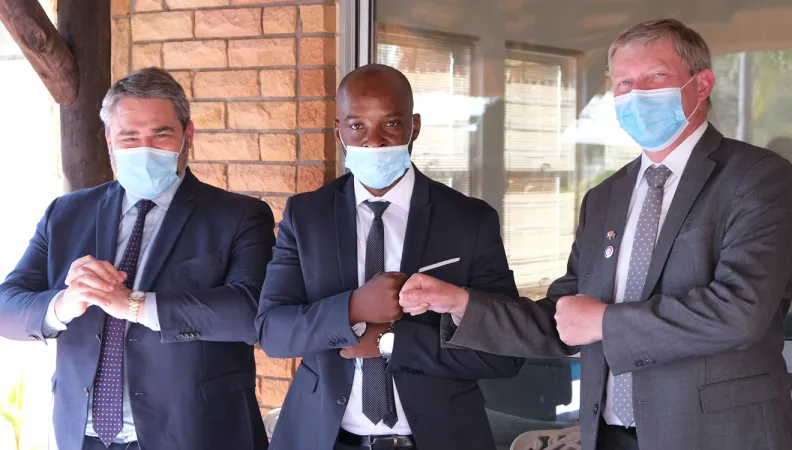Share the page

The Environmental Investment Fund (EIF) and Agence Française de Développement signed an agreement in Windhoek today, to support the design of sustainable financing solutions benefiting to the conservation ecosystem.
Namibia has an ambitious policy of conservation and development of its natural resources, which constitute a powerful tool for local and national economic development, particularly through tourism. Owing to considerable pressures weighing on natural resources in the country, including overexploitation, climate change, population growth and land use conflicts, Namibia has developed an innovative model for natural resource management that combines local development, food security and resource preservation: communal conservancies.
Unfortunately, this model is challenged by the global crisis related to the Covid-19 pandemic. Conservancies suffer from a sudden halt of tourism and hunting activities which represent more than 90% of their revenues. This situation highlights the needs for conservancies to pursue a more diversified portfolio of income generating activities.
It is against this background that the AFD committed to support Namibia in the identification of financing solutions that ensure a steady stream of benefits to conservancies. A € 200,000 (approximately N$ 3,3mn) grant agreement was therefore signed with the Environmental Investment Fund of Namibia in order to design an innovative and effective national Payment for Ecosystem Services mechanism. At its core this mechanism looks to align the interests of local communities with external actors interested in the conservation service being provided, by establishing a market for the exchange of ecosystem services.
The signing ceremony of this agreement was held with the participation of Mr. Benedict Libanda, CEO of the EIF ; H.E. Sébastien Minot, Ambassador of France to Namibia ; Mr. Bruno Deprince, AFD Regional Director for Southern Africa as well as different representatives from entities invited to join the steering committee of the project (Ministry of Environment, Forestry and Tourism ; World Wildlife Fund ; Namibian Association of Community Based Natural Resource Management Support Organisations ; Community Conservation Fund of Namibia).
The funding support to operationalize the PES mechanism is a source of sustainable financing for the conservation sector.
“This project will contribute to the SDGs 8 (decent work and economic growth), 13 (climate action), 15 (protect and promote sustainable use of terrestrial ecosystems) that France is committed to support through its external action”, says Mr Minot, Ambassador of France to Namibia.
“The agreement we are witnessing is another milestone in the sustainable and strategic relationship between the Environmental Investment Fund of Namibia and French Development Agency”, says Mr. Benedict Libanda, Chief Executive Officer of the Environmental Investment Fund of Namibia.
Press contact:
- Environmental Investment Fund of Namibia (EIF): Lot Ndamanomhata
- Agence Française de Développement (AFD): Erica Penfold
